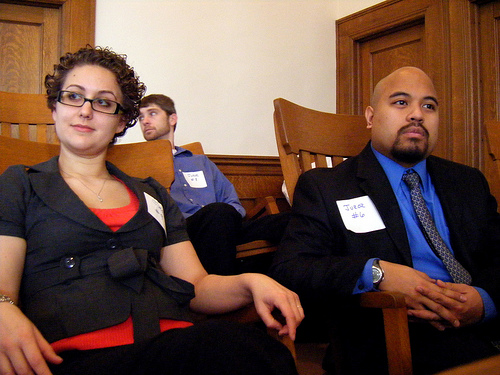When the Judge limits the time for jury selection and you have to get right to the point, consider asking these questions.
Question #1: Intentional vs. Inadvertent Wrongdoing
“This is not a medical malpractice case; this is a medical negligence case.”
Why You Should Ask This Question: Jurors must understand that you are not claiming intentional wrongdoing by the doctor. Juries equate medical malpractice with intentional wrongdoing, whereas medical negligence is equated with inadvertent or unintentional wrongdoing.
Question #2: Burden of Proof
During jury selection, most plaintiffs’ lawyers will simply state that the beyond a reasonable doubt does not apply. This means nothing to jurors, who are only familiar with beyond a reasonable doubt. You must do something more without violating New York’s Uniform Rules of Trial Courts applicable to jury selection.
Without using the words, “preponderance of the evidence”, give an example that illustrates the burden of proof:
If a container has 4 black balls and 3 white balls and I pick one randomly and cover it in my hand, what is the most likely color of the ball?
[Answer: Black]
If I show the ball to you, then you know the color of the ball [without using the words, “beyond a reasonable doubt”].
If I don’t show the ball to you, it is more likely than not a black ball.
Why You Should Ask This Question: This helps the jurors understand the distinction between preponderance of the evidence and beyond a reasonable doubt without using those words.
Question #3: Give the Jurors a Reputation to Live Up To
Give the jurors a reputation to live up to.
“Can anyone tell me a time that you stood up for something?”
“Can you give an example when you showed courage?”
Why You Should Ask This Question: When you give the jurors a reputation to live up to verdict for your side is a courageous verdict that they want to live up to.
Question #4: Find Out Whether the Jurors are against Lawsuits
Ask the jurors whether they would sue:
“If you were injured through the negligence of another, would you sue?”
Why You Should Ask This Question: If the juror would not sue, or would only sue if they were seriously injured, they will apply these same beliefs to your case. These jurors are against lawsuits and will be partial to the defense.
Question #5: What are the Jurors Most Passionate About
Find out what matters most to the jurors.
“Other than your family and faith, what are you most passionate about?”
Why You Should Ask This Question: Jurors will be more likely to open up when talking about what matters most to them and once you get the conversation started, get the others involved in the discussion.
Question #6: What Evidence Would You Like to Have
After describing the contentions of the plaintiff, ask the jurors what evidence they want.
“What evidence would you like to have to make your decision?”
Why We Ask This Question: When you ask this question, the jurors will tell you what they want and you can tailor your trial presentation accordingly. You should always caution that you will provide the evidence that the jurors want if permitted by the law.
Image by David Mark from Pixabay
